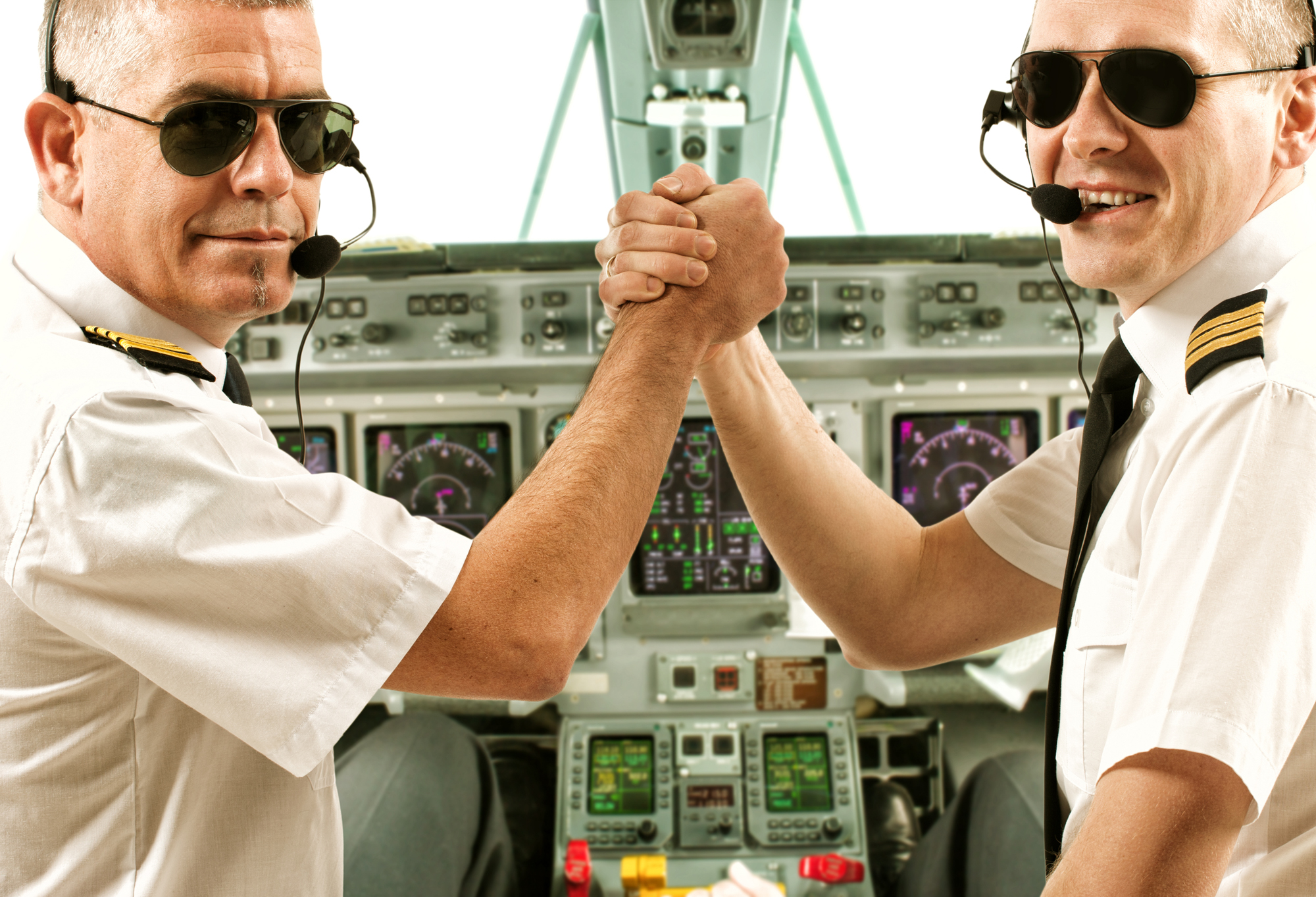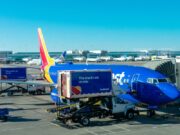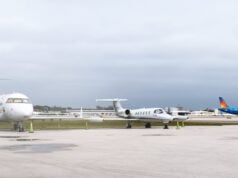A question that my non-aviation friends often ask is, “Are you the copilot or the real pilot?” This is something I am sure almost every professional pilot, corporate, airline or otherwise, is often asked. What is even more surprising is that my mentees or friends learning to fly often ask the same.

Let us address one thing first – the first officer is a “real pilot.” The FO goes through the same training and certification processes. In the airline world, the first officer and the captain switch roles between pilot flying, i.e., operating the controls, and pilot monitoring, the one who handles ATC communication, passenger announcements, checklists, performance calculations, and more. On a routine day, captains and FOs treat each other as equal partners rather than the boss-assistant dynamic most of the public assumes.
Back to the question – what makes a copilot a captain? In the airline world it comes down to one thing – seniority.
When you are hired at an airline you are assigned a seniority number. That number can range from one to as many pilots your company employs. As you stay longer with the company the more senior you become. With time your relative seniority increases, because people above you (those hired before you) will have retired or moved to other airlines. Additionally, the airline will hire people below you (after you) to support attrition and growth. When a pilot is hired, they are in the bottom 99%. When they can upgrade, they are often around 55-65% seniority. That may seem strange if each plane requires two pilots, one captain and one first officer, why do first officers not upgrade at 50%, or halfway up the seniority list?
There are many reasons. Captains typically have more personal time off (such as annual vacation or sick leave), they are more likely to be instructors or in management and as a result, there are usually more captains at an airline than first officers. Additionally, not every first officer can or wants to upgrade immediately.
Why would a first officer be unable to upgrade immediately? The most common reason today is that the first officer doesn’t have the requisite 1,000 hours of Part 121 experience. As many regional airlines are facing high attrition rates, many FOs have the seniority but not the regulatory mandated experience to upgrade.
The decision to not upgrade can also be personal. At the airlines, what days you work, what routes you operate and whether or not you are a reserve pilot or line holder depends on your relative seniority. Relative seniority is your rank in relation to the other pilots, considering your airline, base and aircraft. For instance, at Delta, a pilot may be able to hold the rank of captain on the 737 in New York but cannot hold the same position in Salt Lake City. This may be because Salt Lake doesn’t have 737s based there, or all the 737 captain positions are filled by pilots of higher seniority.
When deciding whether to take an upgrade (that is, to become a captain), pilots will consider their schedule, pay rates, commutability and more. For instance, if I live in Philadelphia, I may prefer to be a copilot on the 787 than a captain on the A320. At American, changing from an A320 FO to a 787 FO will add $44 an hour to your pay rate. While becoming a captain on the A320 may increase your pay by $88 an hour, the ability to fly productive trips may be reduced. This means you may make more per hour, but fly fewer hours per month, resulting in little to no real pay increase. Additionally, if the captain position has more senior pilots, you may not be eligible for premium pay flying, or you may be forced to work holidays. You may not be able to get the days off you need or stay at the overnights you prefer. Or, maybe you must commute to another city, such as Miami to hold that captain position. That added stress and complexity may cause some pilots to forgo immediate upgrades to have a better quality of life (QOL). They will wait for enough retirements or growth to be able to hold the schedule they prefer as a captain.
Having small kids at home, a working spouse or significant outside income (such as a business, military retirement or inheritance) may make some individuals reluctant to become captains. Why leave the comfort of schedule flexibility for more pay when more income isn’t necessarily needed? On the other hand, those new in their careers may sacrifice their schedule quality to upgrade immediately for the career advancement opportunities. For instance, many pilots who work at a regional airline will take the first available upgrade because the belief that 121 PIC time will open doors to more lucrative employment opportunities.
As you progress in your aviation career, you will need help navigating the upgrade question. Which airlines have the most rapid advancement to captain? Which bases do pilots typically upgrade to? On what aircraft can one expect to upgrade to captain at XYZ airline?
One great nonprofit organization, Professional Pilots of Tomorrow, has pilots at every U.S. airline and many from around the world, who can help explain the processes and provide insights. If you are learning to fly, a CFI or a regional pilot, check what they have to offer at theppot.org. Their free mentorship program can provide valuable insights into career progression at airlines and help you make the right decision for you, your family and your career.
























































































































Great article Kristopher and thank you for donating your time at The Professional Pilots of Tomorrow.